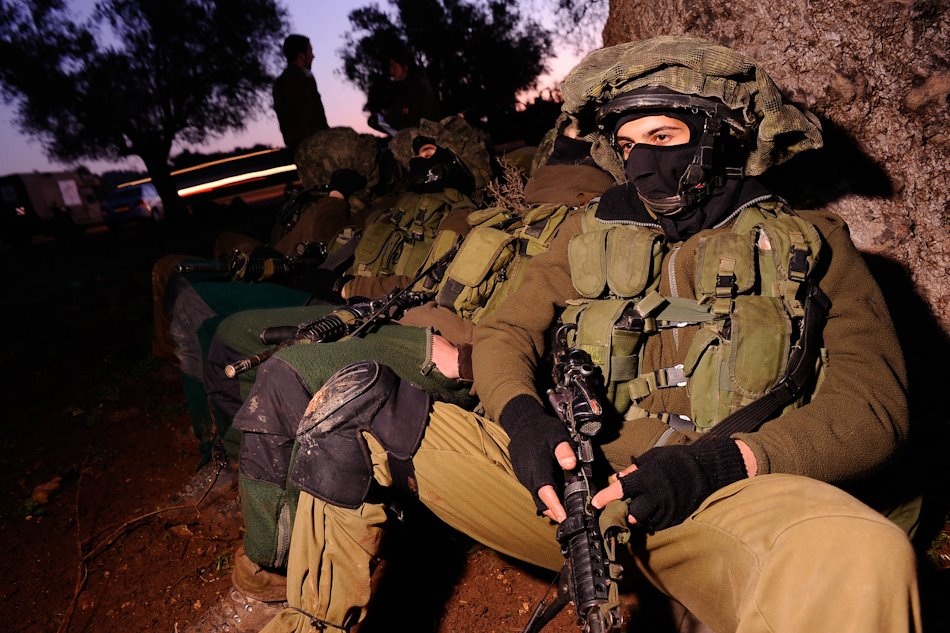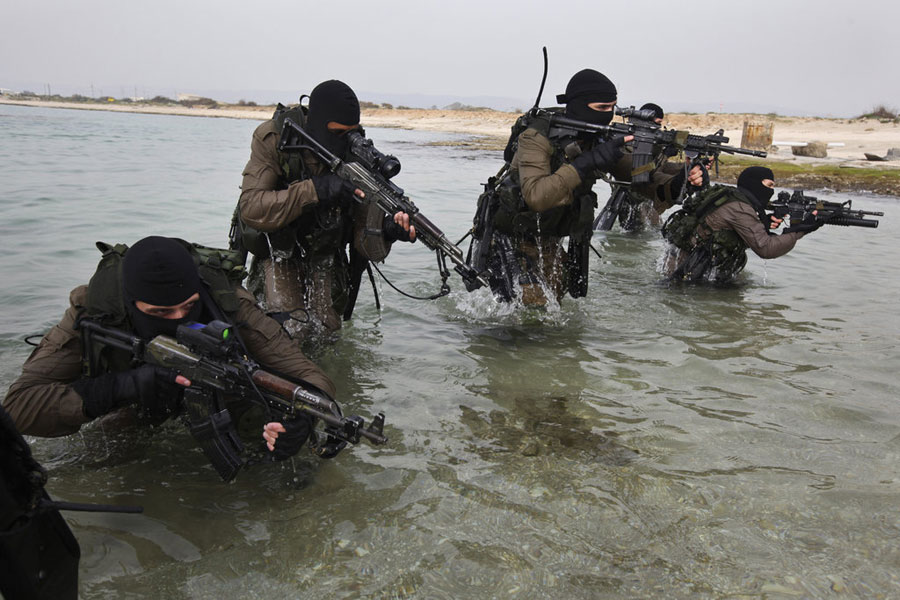The 10 most dangerous Special Forces in the world

The Most Powerful Special Forces in the World
Special forces are highly trained military units that are well equipped to perform unconventional covert missions concerning a nation's security interests.
Many accounts point to unique forces throughout the history of warfare, specializing in covert operations rather than conventional combat. For example, the Romans used fast, small, camouflaged ships with specially trained soldiers for scouting operations.
Then, during the war of the Crusades, the Muslims deployed many camouflaged ships to gather intelligence and raid passing enemy ships. In Japan, ninjas were recognized as a special force.
It's clear that they are no ordinary military units, and this list gathers some of them too. We've compiled the top 10 most dangerous special forces in the world below based on their training, weapons, and performance.

10. GSG 9 - Germany
Type: Elite Tactical Unit
Role: Counterterrorism, specialized law enforcement
On September 5, 1972, a group of terrorists operating under the name "Black September" (Palestinian terrorist organization) disrupted the Summer Olympics in Munich by kidnapping and killing 11 athletes as well as a German officer.
The situation was extremely critical because the German police had neither the prior training nor the equipment necessary for counter-terrorist operations. A year later, the German government instructed the Border Protection Group 9 or GSG 9 to thwart any similar situation in the future.
Since its formation, the GSG 9 has been deployed in numerous counter-terrorism and hostage rescue operations, both at home and abroad. They are also known for developing new tactics and methods for such missions.
Read also:
Russian Spetsnaz: Why they are the best Special Forces soldiers in the world
War in Ukraine: Russian forces attack from 3 sides
Why is Russia invading Ukraine? What does Putin want?
9. GIGN - France

Type: Police Elite Tactical Unit
Role: Special Ops, Counter Terrorism, Law Enforcement
After the Munich massacre in 1972 and a mutiny in Clairvaux prison the previous year, the French government felt the need for a permanent solution to terrorist attacks and hostage taking. As a result, the National Gendarmerie Intervention Group was created in 1974 under the aegis of the French armed forces.
The organization is renowned for its quick reaction and special combat abilities in hostile situations, hostage rescue, and counter-terrorism operations.
GIGN demonstrated these qualities in one of the most daring hostage rescue missions, during which its agents successfully saved a hijacked Air France flight carrying more than 200 passengers by killing four terrorists. In 1994.
The GIGN's central assault unit is made up of four sections, each with about thirty operators. Other units provide intelligence gathering and surveillance in a supporting role.
8. JW GROM - Poland

Nickname: The Invisible and Silent; The surgeons
Role: Counterterrorism, unconventional warfare, direct action
JW GROM, meaning "thunder", is Poland's top counter-terrorist unit and one of five special forces operating under the Polish Special Troops Command. It was established in 1990. During its early years, the GROM drew inspiration from other elite forces like the British SAS, the US Delta Force and the SEALs.
From 1991 to 2004, the JW GROM participated in more than twenty peacekeeping and counterterrorism missions around the world, including Operation Uphold Democracy in Haiti and the invasion of Iraq .
7. Sayaeret Matkal - Israel

Nickname: "The Unit".
Role: Counterterrorism, hostage rescue, special reconnaissance, direct action
Sayeret Matkal is a special forces unit of the Israel Defense Forces (IDF) modeled after the British and French SAS. It was created after the Qibya massacre and the disbanding of Unit 101, the only special force in the IDF at the time, except for the navy's Shayetet 13.
Operation Entebbe , in 1976, demonstrated Sayeret Matkal's reach and capabilities to the world. About 100 Israeli commandos, including Sayeret Matkal operators, stormed Uganda's Entebbe airport on July 4 and rescued more than 100 hostages held in a grounded and hijacked plane.
6. Special Air Service Regiment - Australia

Nicknames: "Snake Eaters", "Chicken Stranglers".
Role: Counter Ops, Special Reconnaissance
Unlike most special forces, the Special Air Service Regiment (SASR) is an integral part of the Australian Army rather than its navy. Created in 1957, the SASR draws on the early experiences of the Australian Services Reconnaissance Department Unit, which was disbanded shortly after World War II.
SASR operators are trained to carry out covert and surveillance missions with small teams, and at the same time, to carry out raids in large groups. Over the years, the SASR has participated in various peacekeeping and counter-terrorism operations, both at home and abroad.
In addition to fighting conventional conflicts, the regiment is also tasked with maintaining a specialized counter-terrorism capability. SASR's other responsibilities include training native forces, recovering Australian citizens and providing humanitarian assistance.
5. Delta Force - USA

Nicknames: CAG, Task Force Green
Role: Counterterrorism, special reconnaissance, hostage rescue, direct action
The Delta Force, also known as the 1st Special Forces Operational Detachment-Delta, is a United States Army unit for counter-terrorism activities. It was created in 1977, after multiple terrorist attacks in the mid-1970s.
The idea for such a unit was suggested by Charles Beckwith, a special forces officer, who had served as an exchange officer with the British Army's Special Air Service (22nd SAS Regiment) during the Malayan Emergency. He proposed a highly adaptable and self-sustaining force specializing in covert missions.
In an interview, former Delta Force operator Paul Howe discussed the high attrition rate of his Delta Selection Course. Of its two classes totaling 240 candidates, only 12 to 14 completed the course.
4. Alpha Group - Russia

Nickname: Alpha Group (Alfa)
Role: Counterterrorism, law enforcement, hostage rescue, direct action
Some of you may be wondering what about " Spetsnaz "? Well, you should know that Spetsnaz is a general term used for all Soviet/Russian special forces.
Alpha Group, officially known as FSB Special Center "A" Directorate, was established by the Soviet KGB in 1974 to conduct paramilitary and covert operations. He is now engaged in anti-terrorist activities. Alpha Group operators are considered one of the most aggressive in the world.
During the Soviet era, the Alpha Group took part in armed interventions in Afghanistan, Lebanon and the Baltic region. Domestically, he took part in almost every major counter-terrorism and hostage-taking operation, including the Moscow theater siege in 2002 and the Beslan school siege in 2004.
3. Shayetet 13 - Israel

Nickname: HaShayetet (The Flotilla)
Role: Special operations, sabotage, counter-terrorism
Shayetet 13 is a special force unit of the Israel Defense Forces. Established in 1948, Shayetet 13 has conducted some of the most dangerous counter-insurgency missions. Perhaps the most notable of these occurred in 1972, when they succeeded in eliminating those responsible for the attack on Israeli athletes during the Munich massacre .
Over the years, Shayetet 13 has mastered its capabilities in maritime intelligence gathering, hostage rescue at sea, counterterrorism, and sabotage. It is often compared and equated with the British Special Boat Service and US Navy SEALs.
2. Navy Seals - United States

Nickname: "Teams".
Role: HVT (high value target) raids, counter-terrorism, hostage rescue, anti-drug operations
These separate US Special Forces were created in 1962 as part of Naval Special Warfare Command and United States Special Operation Command. Although their origins can be traced back to World War II, the Vietnam War of 1961 saw the actual birth of the modern day SEAL.
Over the past few decades, Navy SEALs have been deployed to active war zones, including during the 2003 invasion of Iraq. Operation Neptune Spear was arguably the Navy SEALs' greatest achievement.
Their training methods are incredibly harsh, and often described as "brutal". An average SEAL candidate spends over a year in a remarkable physical and mental training program before being drafted.
1. SAS - England

Nickname: "The Regiment".
Role: Counterterrorism, reconnaissance, special operations
The Special Air Service (SAS) is one of the oldest and perhaps the best special forces serving Britain. It was created in 1941.
The Special Air Service is made up of three units: the 22nd SAS Regiment (the regular unit), the 21 SAS (Artists)(R), and the 23 SAS the reserve unit (reserves). The 22nd SAS regiment has four active squadrons: A, B, D, and G. Each squadron contains more or less 65 men, divided into four troops. Each troop has a separate staff section which is guided by a captain.
The British SAS played an important role during the war in Afghanistan. During a joint rescue operation with US Special Forces, codenamed Jubilee , SAS operators managed to rescue the hostages with no casualties from Badakhshan Province in Afghanistan.
6 comments

La LE dispose, bien entendu, de Forces Spéciales via ses GCP (Groupements Commandos Parachutistes) qui peuvent même être parfois rattachés au COS sous la Direction du CEMA directement !